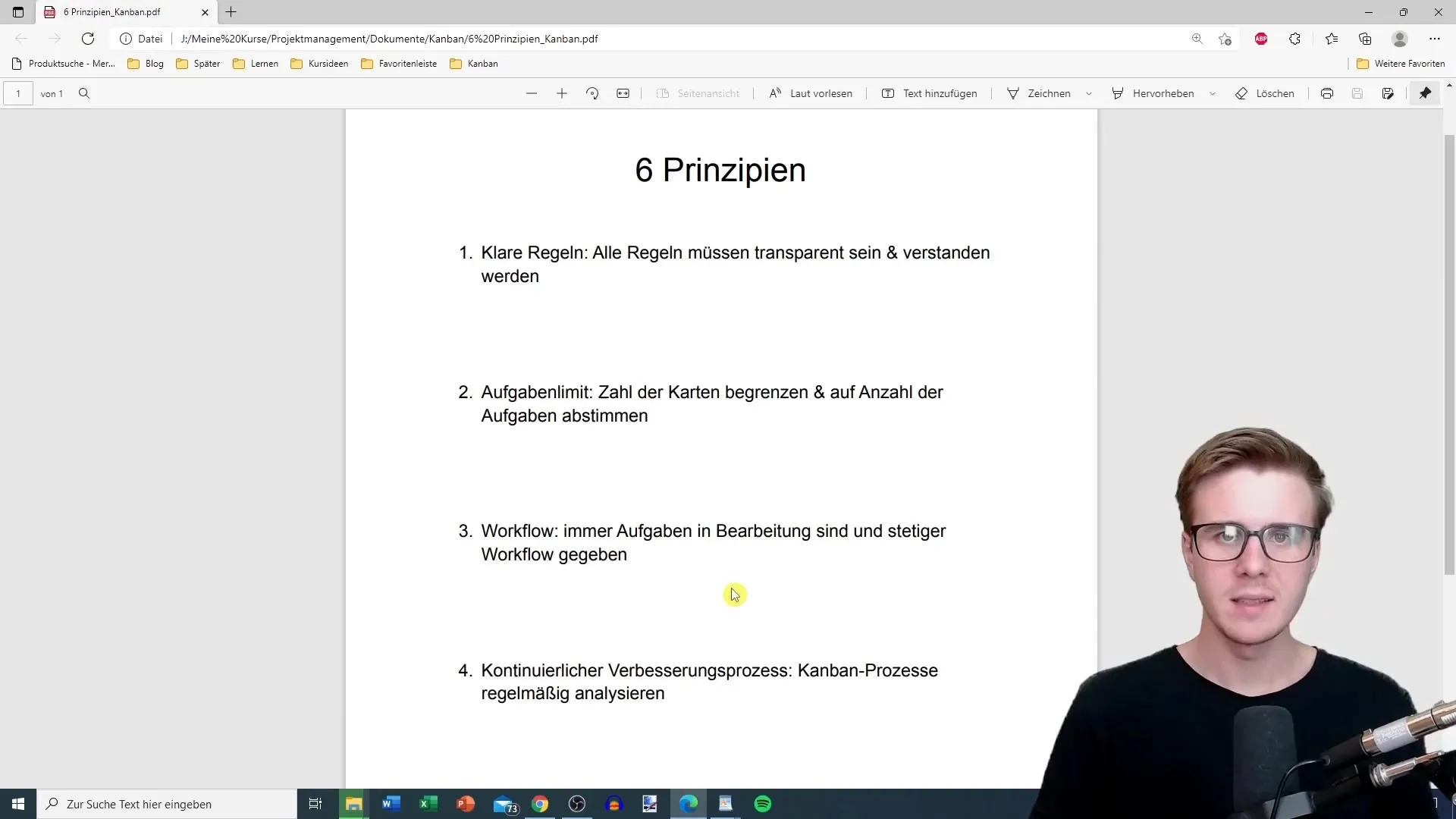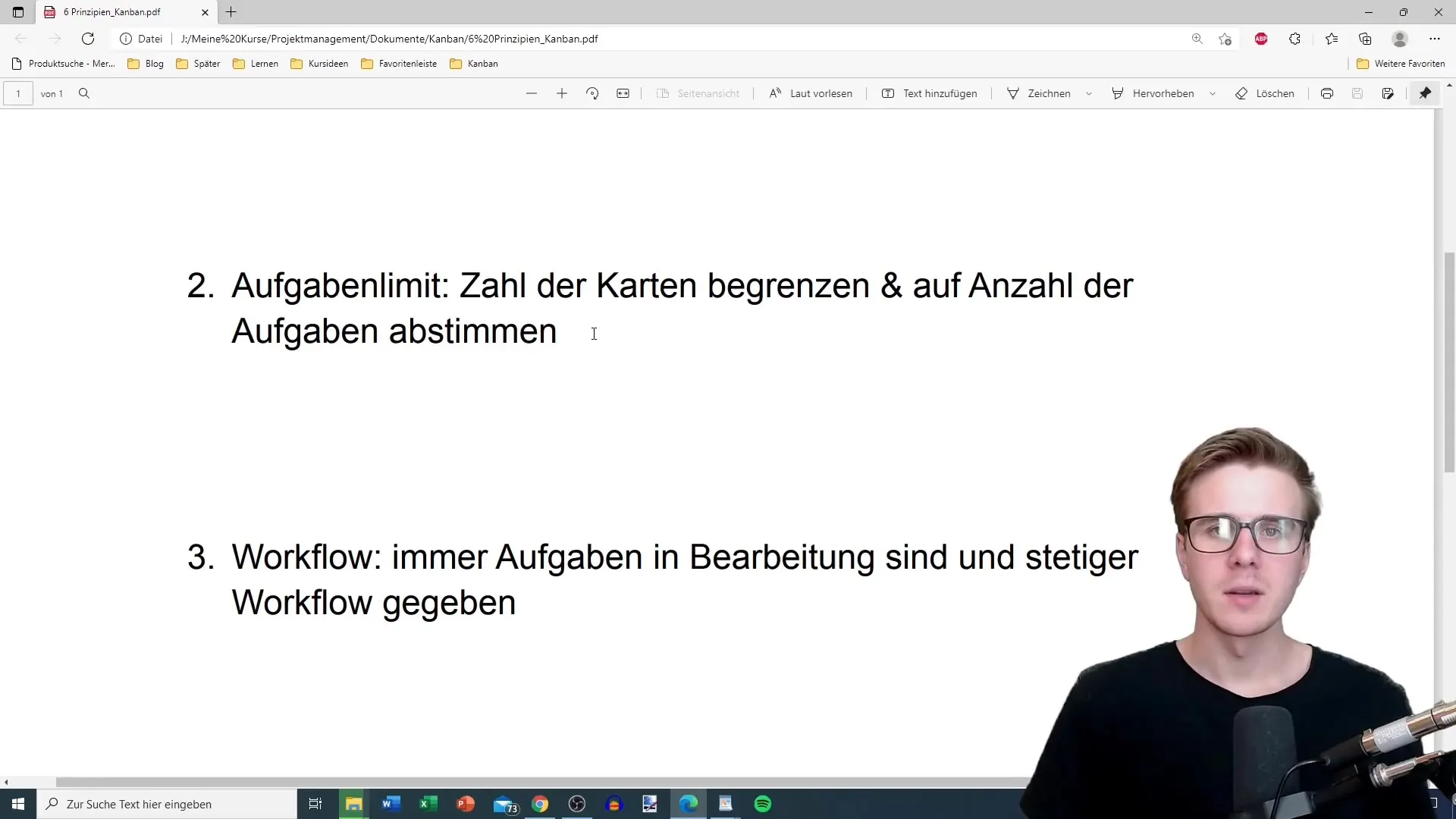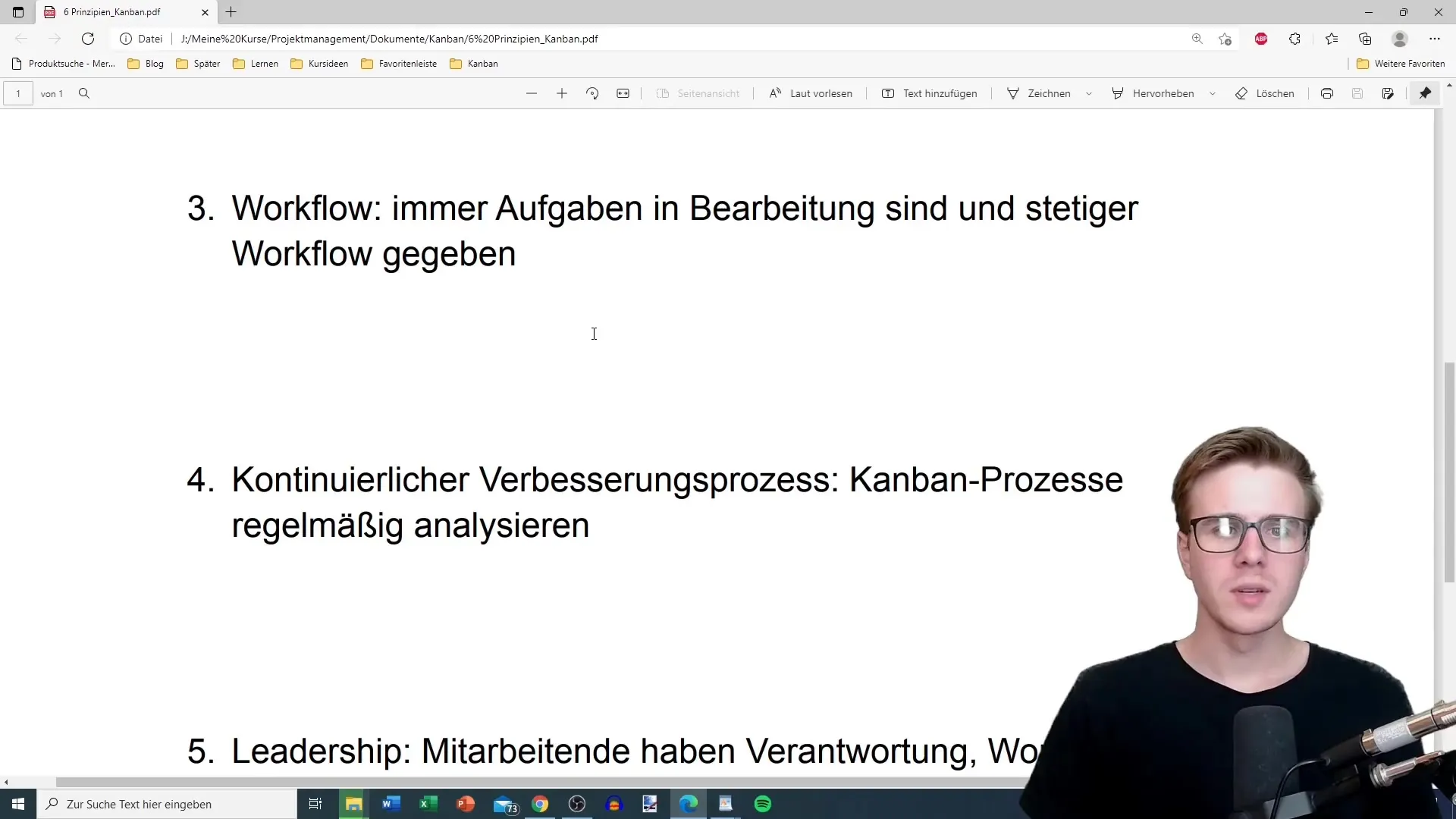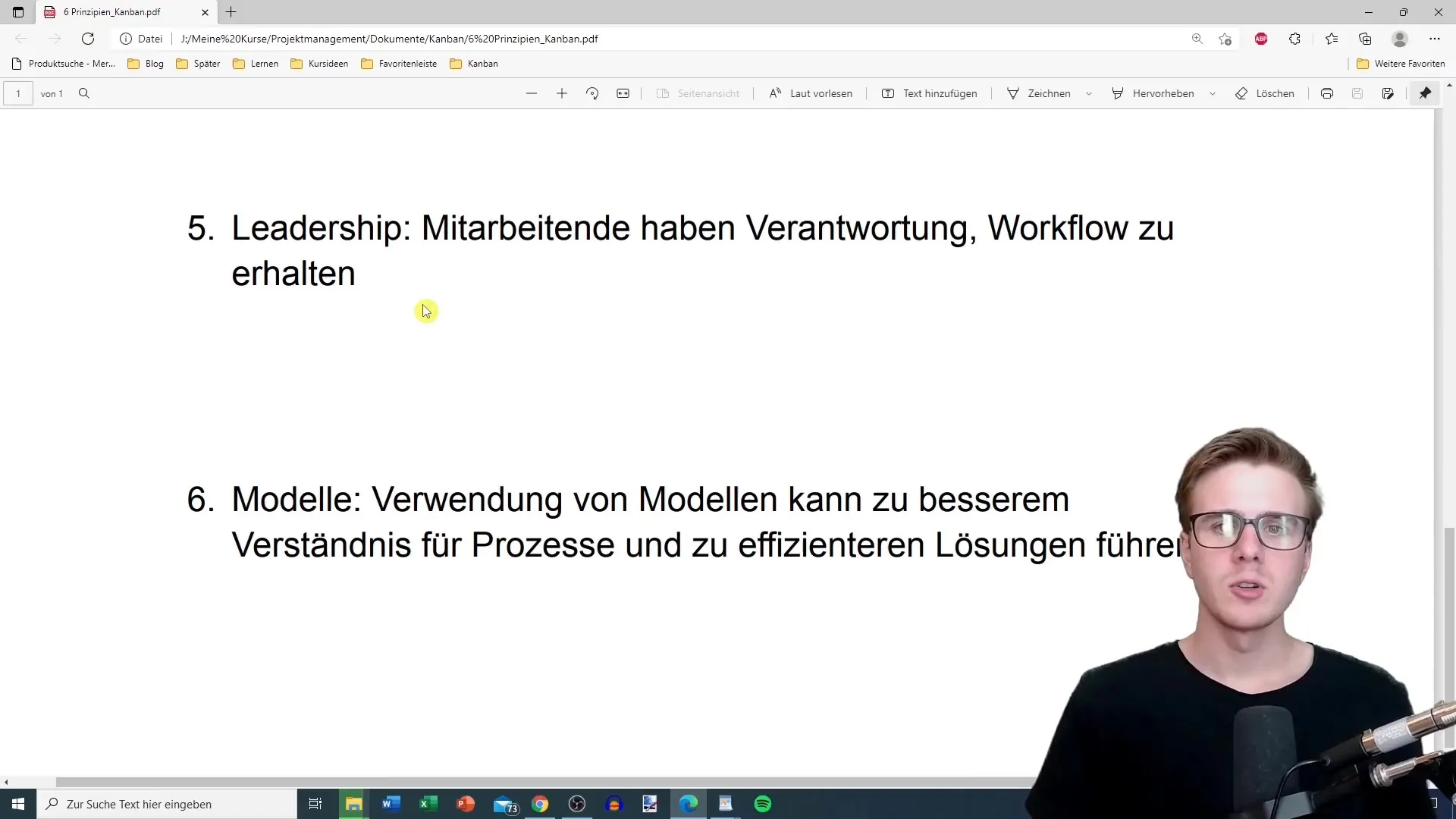What makes a project management tool like Kanban so special? It is based on principles that not only improve organization but also team collaboration. This guide explains the six fundamental principles of Kanban that will help you efficiently manage projects and motivate your team.
Key Insights
- Clear rules are essential to avoid misunderstandings.
- Setting a task limit ensures the team stays focused.
- The workflow should be continuous to prevent bottlenecks.
- Continuous improvement is crucial for long-term success.
- Leadership means team members take responsibility for the workflow.
- Models like Lean Management can bring efficiency improvements.
Step-by-Step Guide
1. Define Clear Rules
Start by establishing clear and transparent rules for your Kanban system. All team members must understand and accept the rules. No matter how good the rules are, they are only as good as the understanding of those working with them. Clear, comprehensible rules prevent misunderstandings and ensure everyone is on the same page.

2. Set Task Limits
It is important to set a limit on the number of tasks that can be worked on simultaneously. This helps keep the Kanban board organized. For example, if you have a project with seven tasks, only distribute seven cards. Too many tasks can get overwhelming and disrupt the workflow.

3. Ensure Continuous Workflow
Maintain a continuous workflow by always having a task in progress. When a team member completes a task, they should be able to pick up the next one immediately. Workflow bottlenecks lead to team members waiting longer or feeling demotivated. A balanced workflow is crucial to the success of your project.

4. Implement Continuous Improvement
Regularly analyze your Kanban processes to increase efficiency. Check if tasks are evenly weighted in scope. Regularly examine if team members are facing difficulties to intervene promptly. Continuous improvement ensures that you learn from mistakes and make adjustments while still in the process.
5. Strengthen Leadership through Team Members
Ensure that team members take responsibility for the workflow. Everyone should know when they can take on a new task and when breaks are necessary. This enables the team to work autonomously and maintain balance in the workflow.

6. Utilize Models and Methods
Use models like Lean Management to optimize processes. Collaborate with your team to identify tasks that may be redundant and try to avoid waste. Efficient work can be enhanced by applying these methods. Few things are more frustrating than investing time in irrelevant tasks.
Summary
The six Kanban principles provide a structure for efficiently managing projects. Clear rules, task limits, continuous workflow, continuous improvements, strengthening responsibility within the team, and the use of proven models are crucial. Make sure all team members are informed and actively work on implementing these principles.
Frequently Asked Questions
How do I implement clear rules for Kanban?Define the rules clearly and ensure all team members understand and accept them.
What is a task limit and why is it important?A task limit restricts the number of tasks being worked on simultaneously and increases focus.
How do I ensure a continuous workflow?Ensure that there is always a task in progress and that new tasks are taken on promptly.
Why is continuous improvement important?It helps to learn from mistakes, adapt processes, and increase efficiency.
What does Leadership mean in the Kanban context?Leadership means that team members take responsibility for the workflow and work autonomously.
How can I utilize models like Lean Management?Use models to identify redundant processes and increase your team's efficiency.


